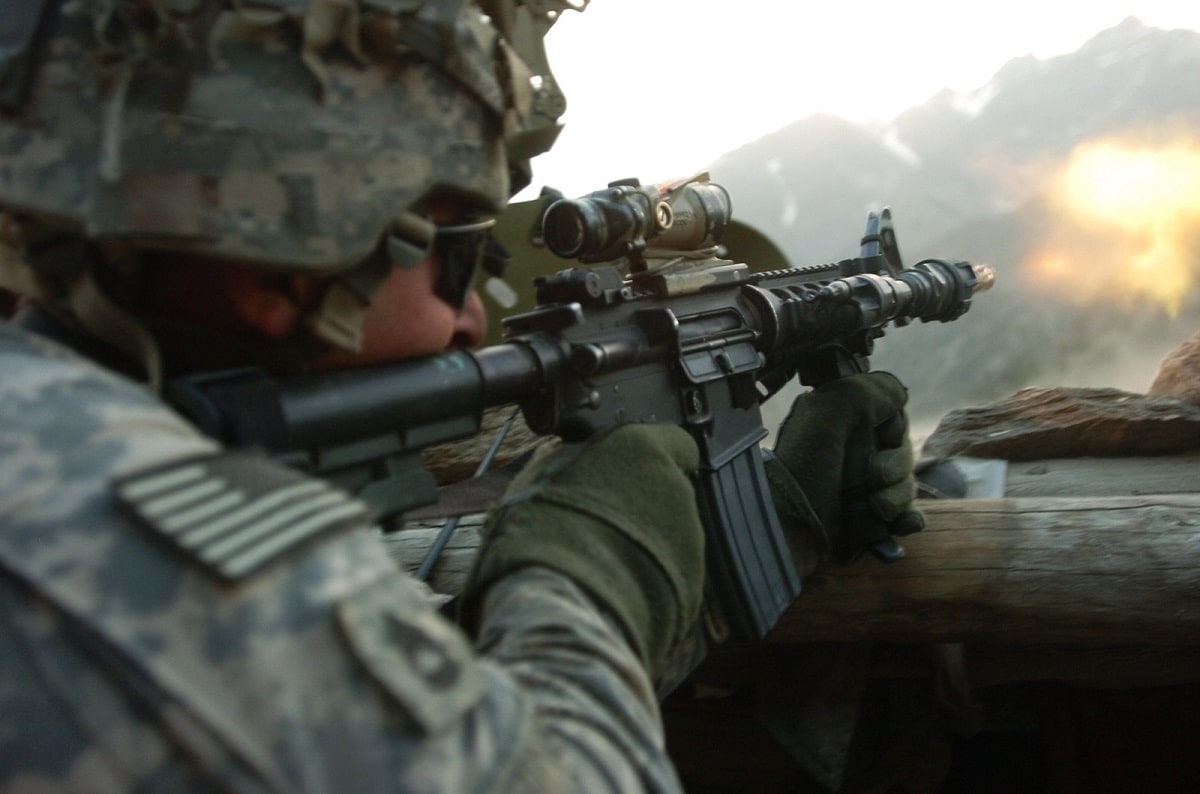With its relatively bloodless capture of Kabul and the disintegration of an Afghan army built, armed, and equipped by the United States to the tune of nearly $90 billion, the Taliban is for all intents and purposes the de-facto government in Afghanistan.
The U.S. evacuation operation, in which tens of thousands of people were airlifted to safety, depended in large part on the Taliban providing a degree of cooperation with the scheme. near the Kabul international airport. Yet with the mass airlift now complete, U.S. officials will turn to a tricky question: to what extent should Washington deal with the Taliban
To date, the U.S. has taken a relatively cautious approach. Washington has had an open-line of communication with the Taliban ever since U.S. envoy Zalmay Khalilzad began direct negotiations with the group nearly three years ago. As those negotiations progressed, U.S. military officials such as U.S. commander Austin Scott Miller were brought into the discussions. The U.S. military was in close contact with the Taliban on a daily basis to work out the logistics of the evacuation from Kabul. CIA Director William Burns flew to Kabul on August 24 to meet directly with Mullah Abdul Ghani Baradar, the Taliban’s de-facto head.
At the same time, the Biden administration is also taking pains to remind people that formal diplomatic recognition of a Taliban-ruled Afghanistan is prefaced on the movement’s willingness to adhere to basic international standards. In the meantime, the U.S. has taken steps to ensure the Taliban are not able to reap the windfalls of the previous Afghan government. Afghanistan’s $9 billion in reserves have been frozen, while $440 million are now blocked. The U.S. is also pausing the $3.3 billion that would have gone to the now-defunct Afghan security forces. All of these measures are prudent, if only because the Taliban’s conduct is still very much open to scrutiny.
Even so, it makes sense for the U.S. to maintain a dialogue with the Taliban—not necessarily because talking will magically push the group into moderating its behavior, but rather because establishing pragmatic relations with adversaries preserves U.S. flexibility. Continuing to talk with the Taliban isn’t necessarily geared toward cementing a positive U.S.-Taliban relationship over the long-term. Instead, the purpose is more basic: to probe whether there are specific issue areas where both parties can cooperate.
The most important of those issue areas is undoubtedly counterterrorism, specifically as it relates to ISIS, a group that killed hundreds of Afghans and 13 U.S. troops at a main gate near the Kabul airport. There is no love lost between ISIS and the Taliban, with the former viewing the latter as insufficiently hardline. This is a significant gap the U.S. can exploit in pursuit of its own National security objectives. Indeed, a workable U.S.-Taliban relationship in the counterterrorism realm is not as far-fetched as one might assume. Washington indirectly assisted the Taliban with anti-ISIS operations in the past. With disgraced Afghan President Ashraf Ghani now enjoying life in the UAE, ISIS is now the Taliban’s principal enemy in Afghanistan and will remain a persistent thorn in the Taliban’s side.
The possibility of cooperation could even expand to other terrorist groups, including Al-Qaeda. At first blush, this may seem extremely naive, reinforced by the Taliban’s public pronouncements of innocence.
Self-interest, however, matters—even for movements like the Taliban, who as Afghanistan’s government-in-waiting now have a fiefdom to protect. The last time the Taliban permitted Al-Qaeda such wide latitude, it saw its Islamic emirate collapse in a span of months. Given the pain and humiliation the movement endured over the last 20 years just to restore it, U.S. officials would be making a mistake to assume the Taliban leadership haven’t learned any hard lessons over the last two decades. Indeed, the Taliban-Al Qaeda relationship has always more fraught than conventional wisdom suggests; as documented in the 9/11 Commission Report, there were considerable differences between the two on tactics and strategy, particularly on the question of whether striking the U.S. was wise. For the Taliban, it most certainly was not. The incentive to repeat the same mistakes is low.
None of this is to be optimistic in general about Taliban behavior. The movement is likely to administer Afghanistan with brutality, particularly as it seeks to consolidate power. Formally treating the Taliban as the legitimate representative of the Afghan people is simply not in the cards for the time being (if it ever is).

Image: Creative Commons.
But in the conduct of international relations, the reality on the ground is a more important variable than our moral predilections. And the reality is this: after the U.S. finally extricates itself from a failed nation-building enterprise, the Taliban will still be the dominant player setting the agenda in Afghanistan. The U.S. can either help a minor anti-Taliban insurgency in the north in an attempt to challenge the Taliban’s position, which will only expand the civil war and increase the civilian death toll. Or it can begrudgingly accept the new order and do its best to work through it.
Daniel R. DePetris is a fellow at Defense Priorities and a foreign affairs columnist at Newsweek.

